Muhammad is considered the “last and greatest prophet” in Islam.
Its basis in the Qur’an and Hadith (the Book of Acts of Muhammad) is as follows.
Muhammad is not the father of [any] one of your men, but [he is] the Messenger of Allah and last of the prophets. And ever is Allah , of all things, Knowing (The Qur’an, 33:40.)
Allah’s Messenger said, “My similitude in comparison with the other prophets before me, is that of a man who has built a house nicely and beautifully, except for a place of one brick in a corner. The people go about it and wonder at its beauty, but say: ‘Would that this brick be put in its place!’ So I am that brick, and I am the last of the Prophets.” ((Hadith).
The “last of the Prophets” part is generally said to be the “seal of the prophets”.
The phrase “the last and greatest prophet” should be a source of pride for Muslims, and even more so for those who believe in him.
On the other hand, from the perspective of coexistence and co-prosperity with other religions, it is true that this phrase is a major stumbling block.
Incidentally, for Islam, Jesus Christ is a member of a lineage of prophets who have appeared in Islam since Abraham.
Islam recognizes Jesus as the “Messiah” but does not understand him as the “Jesus, Son of God” in the Christian context.
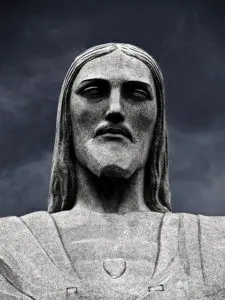
Then, to put it in a nutshell, “Muhammad is more prestigious than Jesus,” isn’t he? This would not be interesting for Christians.
In fact, although Islam recognizes Christians as a “people of the Book,” Christians do not recognize Islam.
In addition, the fact that Muhammad has been terminated as the “last prophet” has led to a situation of “sealing of God’s truth,” so to speak, in which no new truths are preached after Muhammad.
Although sealing God’s truth has the advantage of making it difficult for different and evil theories to emerge, it has the disadvantage of making it increasingly difficult to adapt to events that will occur in the present and future based solely on what is written in the Qur’an and Hadith.
In summary, the declaration “Muhammad is the greatest and the last prophet” has the following disadvantages
- Makes it difficult to coexist and co-prosper with other religions
- Makes it difficult to deal with various events from the modern era to the future.
In this issue, I would like to consider this very point: Is it true that “Muhammad is the greatest and the last prophet”?
And, assuming it is true (or not), I would like to go as far as proposing how to realize the coexistence and co-prosperity between Islam and multiple religions.
Islam in “Return to the Religion of Abraham”
In the Arabian Peninsula at the time of Muhammad’s activities, the old polytheistic religion (although Allah was recognized as the supreme deity) was worshipped, centering on the Kaaba Temple in Makkah (Mecca), but there were also Israelites (Jews) and Christians living there.
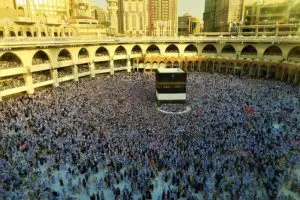
Modern-day Kaaba Temple overflowing with pilgrims
For Muhammad, who was seeking to establish a monotheistic religion, Judaism and Christianity, which were also monotheistic religions, were his predecessors, and he first sought a relationship and positioning with them.
The Islamic position is that God (Allah) sent many prophets to the earth, and their genealogies can be found in the Jewish Torah and the Christian Gospels.
Of the 25 prophets mentioned in the Qur’an, including Muhammad, the following individuals are considered to be the five major prophets
- Noah (Nooh)
- Abraham (Ibrahim)
- Moses (Moses)
- Jesus of Nazareth (Ethar)
- Muhammad
In short, Muhammad recognizes Judaism and Christianity. He treats them as the same “people of the Book.
However, according to Islam, Judaism and Christianity have deviated due to human interpretation.
Judaism has been interpreted as making the truth of God, which was originally preached to all people, exclusive to Jews, while Christianity has been interpreted as making Jesus, who is not God, God, thereby undermining the original “monotheistic” religion.
Therefore, Muhammad founded Islam with the original monotheistic call, “Return to the religion of Abraham.
Like many religious reforms and political revolutions, the birth of Islam was also a “return to the origins.
The religion of Abraham in its most purified form is the Islam of Muhammad.
Muhammad is the “last prophet” within the framework of “Semitic monotheism”
As you can see from the genealogy of the five major prophets, Muhammad is positioned as the “greatest and last prophet,” the trump card after the five prophets.
For Muhammad at that time, India, China, and Japan were not in his mind, and the Orient was the only “earth and the whole world.
In her book “Islam: A Short History,” Karen Armstrong writes
Incidentally, according to Islamic tradition, there were 124,000 such prophets, a number that symbolizes infinity.
Modern Muslim scholars argue that if Muhammad had known about Buddhists and Hindus, or about Australian Aborigines and Native Americans, their sages would have been recognized in the Qur’an. This is because, they say, all religions that are rightly guided and devotedly devoted to the One God, that do not permit the worship of man-made images of God, and that preach justice and equality, all have the same God as their source. *Re-English translation by Takata from the Japanese translation of the book
So, in conclusion, I think it is safe to understand that Muhammad is not the last prophet on a global or cosmic scale, but only the “last prophet” in the stream of Semitic monotheism.
By “greatest,” you mean the achievement of perfecting Semitic monotheism, not, for example, that Muhammad had a higher spiritual rank than Jesus.
Well, I think it is not a bad thing for a group, not only religious, to have pride. It’s like saying, “My wife is the best.”
However, I think it is necessary to be profound enough not to impose it on others (in this case, other religions).
Buddha was also a prophet – creating a common ground for the world’s three major religions
The Sikh and Baha’i faiths, which are derived from Islam, recognize prophets after Muhammad.
Furthermore, Buddhism, which is not generally interpreted as a monotheistic religion, is also recognized by some Muslims as a people of the Book.
According to Jun Noguchi of the University of Tokyo’s Museum of Advanced Studies, the Hanafi school in South Asia claims that Buddhism is also treated as a people of the Book.
Fresh in our memories, Malala Yousufzai, a Pakistani Muslim, addressed the Buddha as one of his “prophets” in a speech at the United Nations.
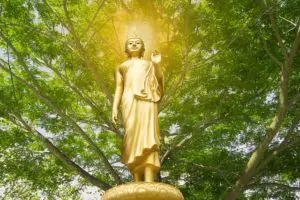
In Indonesia, where belief in a single God is the national policy, Buddhism, Confucianism, and Hinduism are also interpreted as “included in the framework of belief in a single God.
ALL MANKIND were once one single community; [then they began to differ -] whereupon God raised up the prophets as heralds of glad tidings and as warners, and through them bestowed revelation from on high, setting forth the truth, so that it might decide between people with regard to all on which they had come to hold divergent views. (Qur’an, 2:213.)
So, if we take “the Book” broadly as the “Book of Truth,” then we should understand that if a religion (or even philosophical thought) preaches the truth, it is Allah’s teaching, and believers can be considered “people of the Book.
The word “Allah” is not a proper noun, but means “God” (the only God) in Arabic. It is GOD in capital letters.
Therefore, the God of Judaism and Christianity is also “Allah.
If Allah is truly omniscient and omnipotent, if He is “Allah the Beneficent, the Merciful,” then there is no way that He would limit His prophets to the ancient Orient alone.
Do not be misled by words and names.
Even though there is only one God, He manifests Himself in various ways, taking into account regional, historical, and ethnic characteristics. Such is the case with Allah, the Beneficent, the Merciful.
Therefore, the Supreme Principle of Buddhism, the Dharma Body, the “Eternal Buddha,” is really “Allah” in spite of its name.
Only if we see it in this way can we first of all largely build a common ground for the world’s three major religions, Christianity, Islam, and Buddhism.
Then, the idea will become a clue to solving the world’s religious conflicts and religious disputes.
*Reference article: Causes of Religious Conflict and Possible Solutions
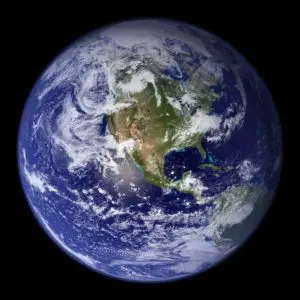
And to the genealogy of modern and future prophets
We can also see from the following Qur’anic statements that even after Muhammad, Allah may choose new prophets and form new ummahs.
O you who have believed, whoever of you should revert from his religion – Allah will bring forth [in place of them] a people He will love and who will love Him [who are] humble toward the believers, powerful against the disbelievers; they strive in the cause of Allah and do not fear the blame of a critic. That is the favor of Allah ; He bestows it upon whom He wills. And Allah is all-Encompassing and Knowing. (Qur’an, 5:54.)
If Allah (the One and Only) is truly a benevolent being, He would not have terminated His prophet in the Arabian Peninsula in the 6th and 7th centuries, a small point in time and space in this seemingly infinite universe.
If it is a God who censures prophets, then it is not a universal God, but an ethnic God in charge of a limited time and region.
The irony of the claim that “Muhammad is the last prophet” is that it would impede Allah’s omnipotence.
Therefore, after Muhammad, various prophets will continue to descend to the earth at different times and in different regions. They have also descended to the present day.
The term “prophet” itself is a Semitic monotheistic one, but the point is that they are beings charged with a divine mission.
For example, in Buddhism, they are sometimes referred to as bodhisattvas, or some other term.
The fact that “prophets” continue to be mentioned throughout the ages, transcending time and region, is proof that Allah is the Absolute God.
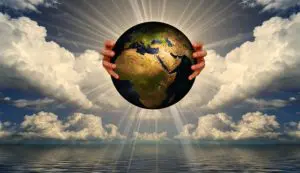

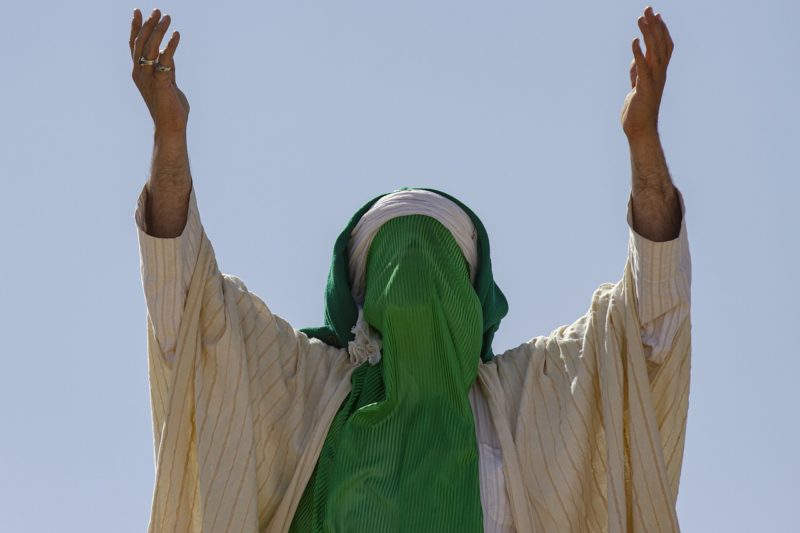
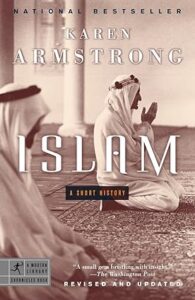


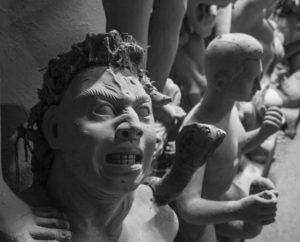
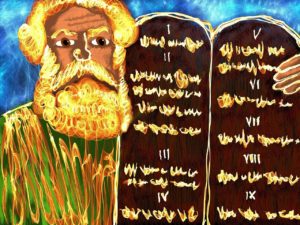
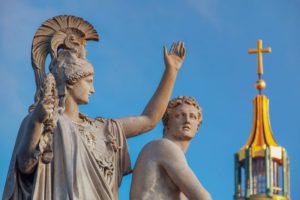

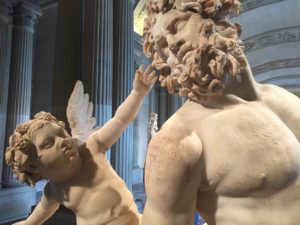
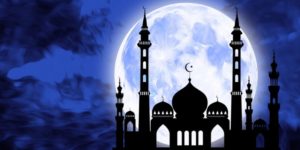
Comments